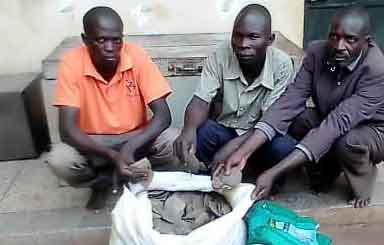In a bid to save the wildlife, the World Animal Protection has today ( Wed 26th 2020) launched a global digital campaign to stop Wildlife trade.
The campaign aims to put pressure on South Africa and other G20 countries to commit to a ban on the global wildlife trade.
This campaign comes at the back of more evidence that COVID19 could have come from animal trade.
Edith Kabesiime, the Campaigns Manager at World Animal Protection says that the leaders of the world’s 20 largest economies can bring about a collective response and global answers to the COVID-19 pandemic and future pandemics.
“We can no longer afford to leave this to chance. A global wildlife trade ban is the only way to end the cruelty and protect our health and economies,” Kabesiime stresses.
She said that animals like lions are at the centre of a cruel multi-billion-dollar business that exploits them on an industrial scale.
According to Kabesiime Lions’ bones are traded as medicine, bred in captivity, enduring a life of suffering, adding that they are deprived of the life they would have in the wild.
She reveals that Lions are shipped around as freight, treated as mere commodities, with their wellbeing ignored.
“They are crammed into cages, kept in poor health, and often killed for their body parts. This is a business that is inherently cruel,” she adds.
Now the World Animal Protection is working with media, social media influencers and the general public across the globe to put pressure on the G20 Countries to end the trade.
The organization has provided a petition link. https://www.worldanimalprotection.or.ke/global-wildlife-trade-ban for members of the public to join and sign the petition.
The conservationists say that COVID-19 is a wakeup call for the world and the case for a global wildlife trade ban has never been more urgent.
The origins of the deadly pandemic that’s sweeping across the world leaving a trail of destruction are thought to originate from a food market in, China, where wild animals were being sold.
While the exact animal that it came from is uncertain, the World Animal Protection knows that this was caused by exploiting wild animals. Taking animals from the wild or breeding them in captivity creates a real lethal concoction for diseases to thrive.
The group stresses that global problems require global solutions.
When we leave animals in the wild, we create a world that is free of man-made animal suffering and subsequently, zoonotic threats are drastically reduced. We can no longer afford to leave this to chance. A global wildlife trade ban is the only way to end the cruelty and protect our health.
According to a statement the conservationists say that the World must come back better after Covid 19 pandemic; And it isn’t just the responsibility of the world’s leaders; but all people have a role to play, to make better choices for wild animals, the environment and health.








